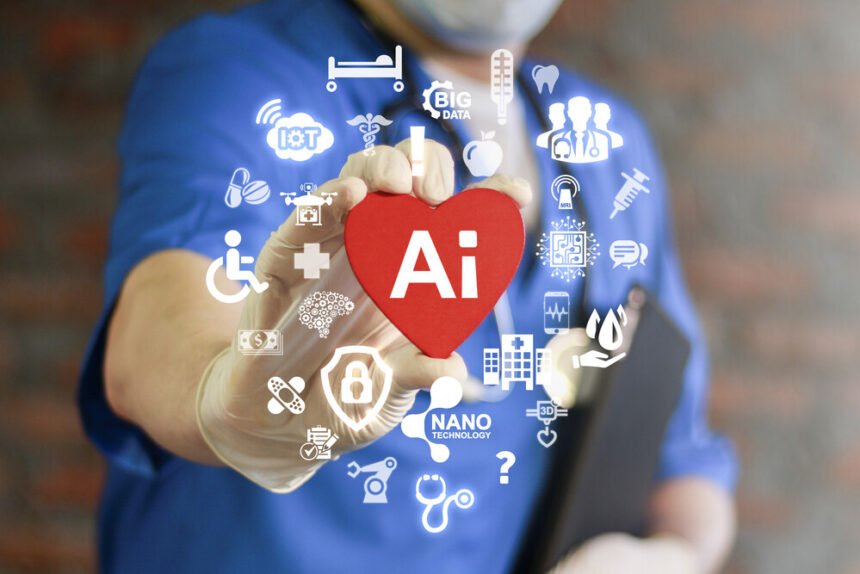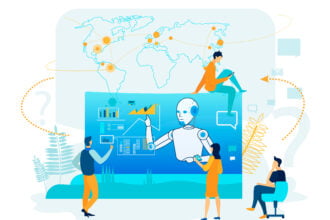Few technological advancements have been as divisive as artificial intelligence (AI), especially in matters where human lives could hang in the balance. For example, AI is already seeing increased use in the medical industry, but many consumers view AI as unpredictable, or even dangerous, not to mention entirely superfluous.
For reference, AI refers to any machine or automated process that’s designed to imitate human intelligence, usually in the realms of learning, reasoning, or self-correction. Modern AI algorithms often fall into the category of machine learning, where complex algorithms can “teach” themselves to improve certain skills, such as recognizing diagnostic criteria for certain diseases.
Despite the fears associated with it, AI is becoming increasingly necessary in many cases to advance medical treatment and improve outcomes. Some would argue it’s our ethical responsibility to continue advancing our use of it.
Individualized Treatment
With advancements in data mining and analytics, and medical research in general, we are becoming more acutely aware that there’s rarely any one “standard” treatment for an ailment, disease, or injury. Genetics, medical history, current medications, and co-occurring illnesses can all complicate what is otherwise a simple diagnosis. Human doctors, despite their extensive training and experience, only have a limited ability to process the thousands of data points that come together to determine an individual’s ideal treatment plan.
In cancer care, specifically, genomic data is very important to changing the “one size fits all approach” with treatment management. Advanced data systems (such as Viviphi) use algorithms that evolve and “learn” based on global trends and individual circumstances. These AI solutions make complex treatment recommendations for cancer patients based on their individual characteristics and risk factors. Without that individual treatment, we run the risk of applying ineffective (or even harmful) treatments to patients, based only on the fact that those treatments worked well for someone else. With so much data available to us now, we need AI to make the most informed and objective judgment calls.
Doctor Shortages
Human doctors aren’t perfect computational machines, but they’re still the best resources we have to treat patients—and their numbers are dwindling. According to the AAMC, within the next decade, we’re going to see a physician shortage of between 61,700 and 94,700, which could leave millions of people with insufficient care. To make matters worse, many of those missing doctors are projected to be in fields of surgical specialty, making it more difficult to receive complex or niche operations for specific conditions.
Already, AI robots are emerging to address this shortage, with surgical bots like Smart Tissue Autonomous Robot (STAR) capable of outperforming their human counterparts. If we’re going to maintain or increase the quality of medical care available in the midst of this doctor shortage, we’re going to need artificial creations to help fill the void.
Increasing Medical Costs
The cost of medical treatment has historically risen far faster than inflation, and there’s no sign that those costs will slow down anytime soon. There are dozens of factors responsible for this increase, but suffice it to say, costlier medical care is a bad thing—it means more people will be forced to face an ultimatum of getting the treatment they need and going broke, or risking a lack of treatment. AI could pose a solution to this; not only is AI more objective and more precise than its human counterparts (when applied correctly), it could also be more cost efficient. Early costs of AI development will be enormous, but once perfected and industrialized, the cost of creating a new medical bot will be far less than educating and training a new medical professional. In time, this should drive down the average cost of healthcare, and allow more people greater access to the treatment they need.
Medicine in Developing Countries
Medicine is currently a major problem for developing countries, such as those in Africa, Southeast Asia, and the Western Pacific. Roughly 60 percent of the WHO’s “essential” medicines are unavailable in these countries, due partially to the cost and partially due to a lack of medical professionals in the area. AI won’t immediately solve the problem of medical availability in developing countries, but it could help us equalize the playing field, providing a practically infinite number of physician-like bots and simultaneously driving down the costs of medicine in these areas.
The Real Dangers
So is the existential danger of AI something that’s been overblown by the media, technologists, and doomsday predictors? Not necessarily. AI is still a volatile area of research, and we need to develop AI responsibly and safely if we want it to work in our favor. For example, AI that’s only available to some people could further increase class divisions, and AI that learns on its own could integrate “wrong” information into its ongoing operations.
However, shutting down the possibility of using AI in the medical industry is too extreme a reaction. Instead, we need to commit ourselves to advancing medical AI as responsibly and deliberately as possible. Developing AI in the medical industry, further than it’s already gone, is going to help us resolve the forthcoming doctor shortage, mitigate the ever-rising costs of healthcare, and bring adequate medical treatment to areas of the world that are currently without it. It’s more than just beneficial—it’s a necessity for preserving the health of the human race.











